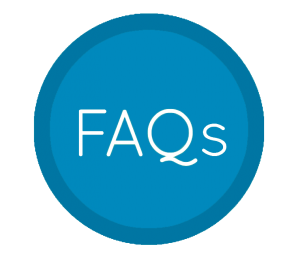 Whether you’ve never sold a home or sold half a dozen, there are many questions that come with the home selling process. This is certainly due to the fact that selling a home isn’t a process that’s practiced regularly and also that rules, regulations and the industry change on a daily basis.
Whether you’ve never sold a home or sold half a dozen, there are many questions that come with the home selling process. This is certainly due to the fact that selling a home isn’t a process that’s practiced regularly and also that rules, regulations and the industry change on a daily basis.
We find the top frequently asked questions begin to accumulate before the process has even started. If you’re thinking about selling, we suggest you educate yourself and ask as many questions as you can.
So what are the most frequently asked questions from home sellers? Here are the top questions we get asked every week.
When is the best time to sell my home?
Many people used to consider Spring and Summer to be the most advantageous time to sell because the football has finished and the weather is kinder. These days with digital marketing, we can just about reach everyone who’s considering buying property, so that Spring/Summer idea has become outdated. In fact, the cooler months can actually be better as there are less properties on the market for buyers to choose from which can potentially enhance your price. Remember, it’s a property market, that is, supply and demand have a huge influence on prices.
How much is my home worth?
Most agents will say a home is worth what a buyer is prepared to pay. At Aitken Real Estate, we believe it’s what a skilled negotiator can persuade a buyer to pay!
Engaging a registered valuer to assess your home’s worth is an alternative in cases of significant dispute, such as divorce or a deceased estate. However, there’s a significant cost to this and whilst these assessments are recognised by a court (agent’s opinions are not), ultimately if the property is to be sold, you’re about to find out what the market thinks.
Agents regularly espouse that an auction will determine the market worth, but that just isn’t true. An auction can only determine that the underbidder has paid all their money for the property (as they stop bidding). The winning bidder only has to place the next bid to succeed, however they still may have $1000, $10,000, $50,000 or even $100,000+ they are willing to pay to secure the home.
There are alternatives to ensure you succeed in getting a buyer’s highest price!
For a ‘wave of the hand’ value, have a look at your rates notice. You’ll find:
- CIV: Capital Improved Value is the total market value of the land plus buildings and other improvements.
- SV: Site Value is the market value of the land only.
- NAV: Net Annual Value is either 5% of the CIV or the current value of a property’s net annual rental (gross annual rental less specified outgoings such as insurances, land tax and maintenance costs, but excluding council rates). Residential dwellings and apartments by law must have a NAV which is 5% of the CIV.
How do you determine how much my home is worth?
- Experience
- Recent comparable sales
- Market pressure
- Popularity to buyers of that particular style of home
- Layout of a home
- Position/location
- Availability to shops, schools and public transport. Walking distance to a train station and popular schools can have a huge influence on price.
There are also many factors that can detract from an optimum price. If you have the right agent, they will be able to tell you honestly about those things. But make sure you do this before signing the authority to sell. Agents often use these detracting factors to ‘condition’ you to accept a lower price, particularly with auctions.
Why is the assessed value different than what the agent says my home is worth?
If you get a registered valuer to assess your home’s value, the agent’s and the valuer’s assessment should be similar. Agents invariably ‘blue sky’ their opinions (particularly in a good market) as they’re competing to secure your home for sale. Unfortunately, the biggest liar often gets the job which perpetuates real estate agents’ poor standing as a profession.
There are other factors that can also impact. Some agents are very knowledgeable about their area and the buyers that are currently seeking homes. The fact your home may suit a particular buyer can play into this.
How long should it take to sell my home?
A very common question and one that agents who push public auctions want because they can say an auction campaign runs for about 30 days.
The truthful answer is how long is a piece of string?
A home can be sold on day one or longer. It really depends on the owners’ expectation of price and the market reflection of that expectation, together with the negotiation skills of the agent and whether or not the client trusts the agents’ judgement.
Can I sell my property while it is currently leased?
Absolutely.
The overriding factor will be settlement. In other words, if the tenants have a fixed lease for another 6 or 7 months and the new owner wants to move in, they can purchase and settle on the property, but have to take over the tenancy until it expires.
If the tenant is on a monthly tenancy, then all that is required is a 60 day notice to vacate.
How do I choose the right agent to sell my home?
Ask prospective agents these 7 questions:
- Are you the best agent to sell my home? If yes, why?
- Have you read a book on negotiation? If yes, which book and what did you learn that will help us?
- How do you plan to get us a better price than other agents?
- Which is more important to you: the lowest price we will accept as sellers or the highest price that buyers will pay?
- How do you discover the highest price buyers will pay?
- If you recommend public auction, how do you make sure that the buyers offer the highest price they are willing to pay?
- Do you have any qualifications in real estate negotiation?
Should I renovate my home before trying to sell?
Probably not. Once the decision to sell is made, most renovating, updating and improvement decisions are made on a budget and trying to foresee what might be in the mind of a buyer.
If you have chosen the right agent, they should be able to give useful tips in presentation and any factors that should be attended to.
Don’t believe all the hype from television and magazines about renovating!
Is an auction the best way to sell my home?
That depends if you don’t care about getting all of the money a buyer may have to buy your home! A public auction can only ever deliver the underbidder’s highest price as they stop bidding. That one bid the highest bidder now makes that buys the home may be only another $500 or $1000. However, they may have been prepared to pay another $1,000, $10,000 $100,000 or more!
There are better ways to ensure you maximise a buyers highest price than public auctions!
How much will I pay in commission and advertising?
Commission is always negotiable. However, the old adage of cheap is rarely the best should be adhered to – cost is what you pay and value is what you get.
If all the agent is doing is running advertising they’re charging you for, then commission should be as cheap as possible!
Another factor is the outrageous cost of advertising which, for the most part, is there to promote and lift the agents profile and not to maximise the price of your home.
Ask yourself this… If an agent will easily discount their fees (which is probably the most important thing to them), what do you think they will do with your money when it comes to a buyer?
Do you have buyers waiting?
The simple answer is yes!
Do we have the buyer for your home that will pay the most…unknown.
The fact is all agents should have buyers waiting – after all we are real estate agents! But there in lays the awkward question – why do agents continually auction similar homes or similar price homes in a suburb and charge more advertising!?
